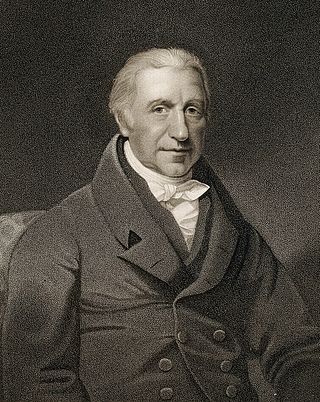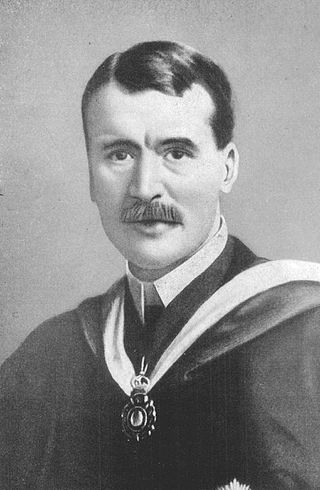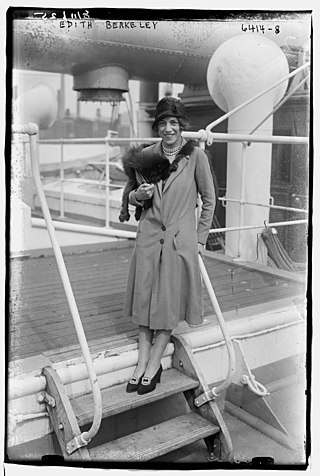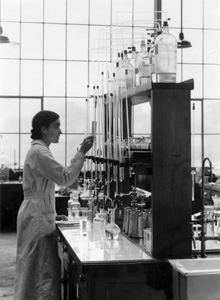This article needs additional citations for verification .(January 2023) |


Herbert Alfred Humphrey MInstCE MIMechE MIEE FCGI (2 December 1868 – 9 March 1951) was a British engineer, inventor of the Humphrey pump. [1] [2] [3]
This article needs additional citations for verification .(January 2023) |


Herbert Alfred Humphrey MInstCE MIMechE MIEE FCGI (2 December 1868 – 9 March 1951) was a British engineer, inventor of the Humphrey pump. [1] [2] [3]
Humphrey was born in Gospel Oak, London, to Louisa (née Frost, 1831–1911) and John Charles Humphrey (1833–1903). His mother had been a dressmaker before marriage, and his father was a clerk at the London Metropolitan Board of Work s and later London County Council. Edith Humphrey, thought to be the first British woman to obtain a doctorate in chemistry, was his younger sister. [4] He trained at the Finsbury Technical College and the Central Institution (which later became the City and Guilds College).
He patented the Humphrey pump in 1906.[ citation needed ] During World War I he worked as a chemical engineer, working on improving the production of explosives.[ citation needed ]
He was awarded the Melchett Medal in 1939 by the Institute of Fuel. In 1945, he retired to Hermanus, Cape Province, Union of South Africa. He died there in 1951.[ citation needed ]
He was married to Mary Elizabeth Horniblow. They had three sons and two daughters, including the bacteriologist John H. Humphrey.
A collection of Humphrey's papers is held in the archives of Imperial College London. [2]

Imperial College London is a public research university in London, England. Its history began with Prince Albert, consort of Queen Victoria, who developed his vision for a cultural area that included the Royal Albert Hall, Victoria & Albert Museum, Natural History Museum and several royal colleges. In 1907, Imperial College London was established by royal charter, unifying the Royal College of Science, Royal School of Mines, and City and Guilds of London Institute. In 1988, the Imperial College School of Medicine was formed by merging with St Mary's Hospital Medical School. In 2004, Queen Elizabeth II opened the Imperial College Business School.
Anne Barbara Ridler OBE was a British poet and Faber and Faber editor, selecting the Faber A Little Book of Modern Verse with T. S. Eliot (1941). Her Collected Poems were published in 1994. She turned to libretto work and verse plays; it was later in life that she earned official recognition, receiving an OBE in 2001.

Bedford College was founded in London in 1849 as the first higher education college for women in the United Kingdom. In 1900, it became a constituent of the University of London. Having played a leading role in the advancement of women in higher education and public life in general, it became fully coeducational in the 1960s. In 1985, Bedford College merged with Royal Holloway College, another constituent of the University of London, to form Royal Holloway and Bedford New College. This remains the official name, but it is commonly called Royal Holloway, University of London (RHUL).

William Babington FRS FGS was an Anglo-Irish physician and mineralogist.

Sir Maurice Linford Gwyer, was a British lawyer, judge, and academic administrator. He served as Vice-Chancellor of Delhi University from 1938 to 1950, and Chief Justice of India from 1937 to 1943). He is credited with having founded the college Miranda House in 1948 in Delhi, India. Gwyer Hall, the oldest men residence for the university students is named after him.

Rev. Edward Henry Bradby (1827–1893) was a classicist.

John Herbert Humphrey CBE FRS FRCP was a British bacteriologist and immunologist.

Herbert Brereton Baker was an English inorganic chemist.

Sir Thomas Henry Holland was a British geologist who worked in India with the Geological Survey of India, serving as its director from 1903 to 1910. He later worked as an educational administrator at Edinburgh University.
Walter Hindes Godfrey, CBE, FSA, FRIBA (1881–1961), was an English architect, antiquary, and architectural and topographical historian. He was also a landscape architect and designer, and an accomplished draftsman and illustrator. He was (1941–60) the first director and the inspiration behind the foundation of the National Buildings Record, the basis of today's Historic England Archive, and edited or contributed to numerous volumes of the Survey of London. He devised a system of Service Heraldry for recording service in the European War.

Sir Richard Durning Holt, Baronet, JP was a British Liberal Party politician and businessman with interests in shipping.

Sir Herbert Isambard Owen was a British physician and university academic. He was the first Vice-Chancellor of the University of Bristol and a deputy Chancellor of the University of Wales.
Herbert Harold Read FRS, FRSE, FGS, was a British geologist and Professor of Geology at Imperial College. From 1947-1948 he was president of the Geological Society.
Sir Owen Alfred Saunders, FREng, FRS was an English applied mathematician, engineering science academic, and university administrator.

Edith Berkeley was a Canadian marine biologist who specialized in the biology of polychaetes. The Edith Berkeley Memorial Lectures were established in the University of British Columbia in her memory in 1969.

Edward Harold Spender, was a British Liberal Party politician, author, journalist and lecturer.

Edith Ellen Humphrey was a British inorganic chemist who carried out pioneering work in co-ordination chemistry at the University of Zurich under Alfred Werner. She is thought to be the first British woman to obtain a doctorate in chemistry and the first chemist to synthesize a chiral inorganic complex.
Letitia Chitty was an English engineer who became a respected structural analytical engineer, achieving several firsts for women engineers, including becoming the first female fellow of the Royal Aeronautical Society and the first female recipient of the Telford Medal.